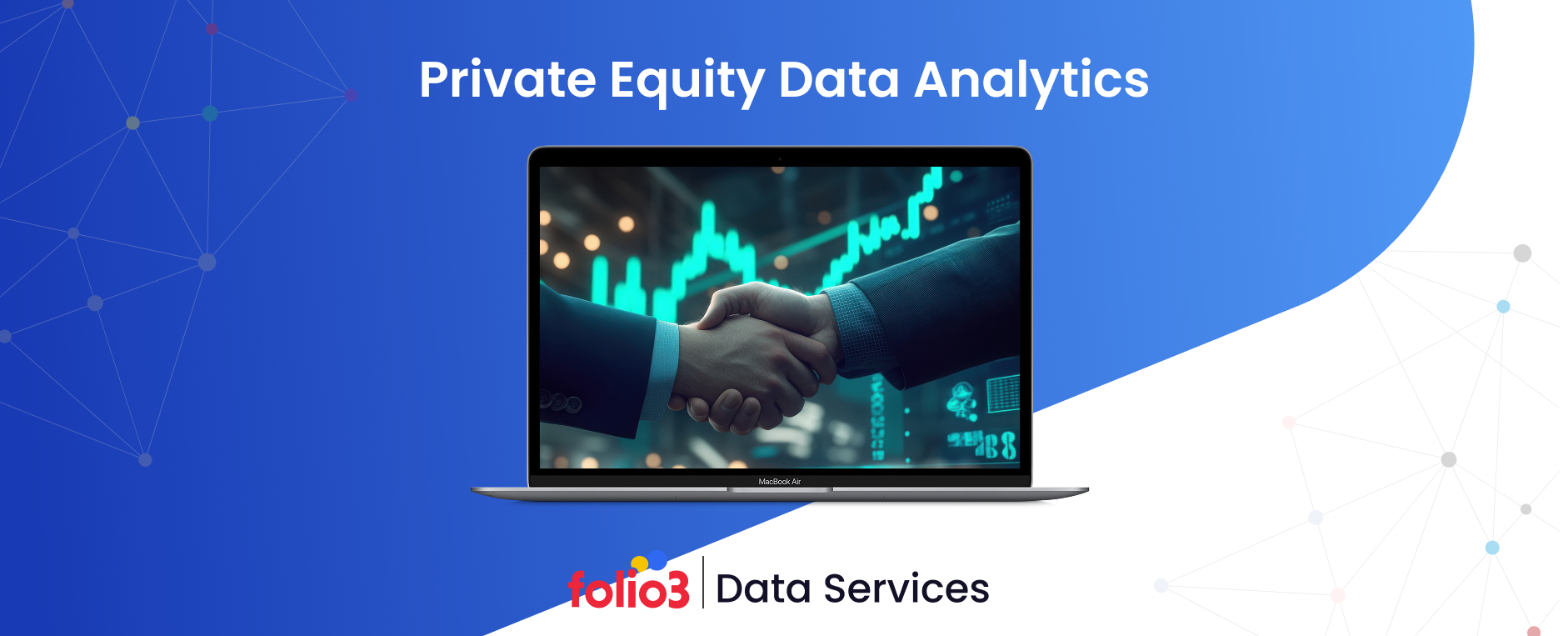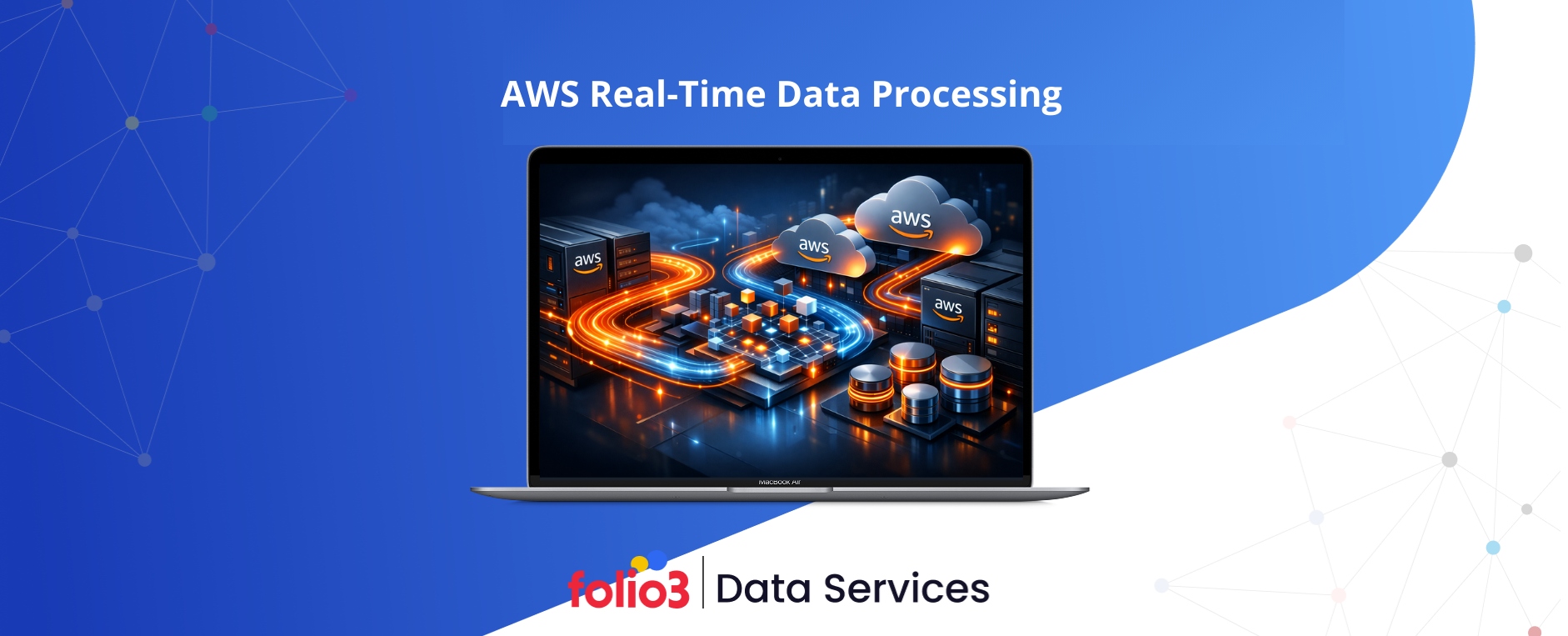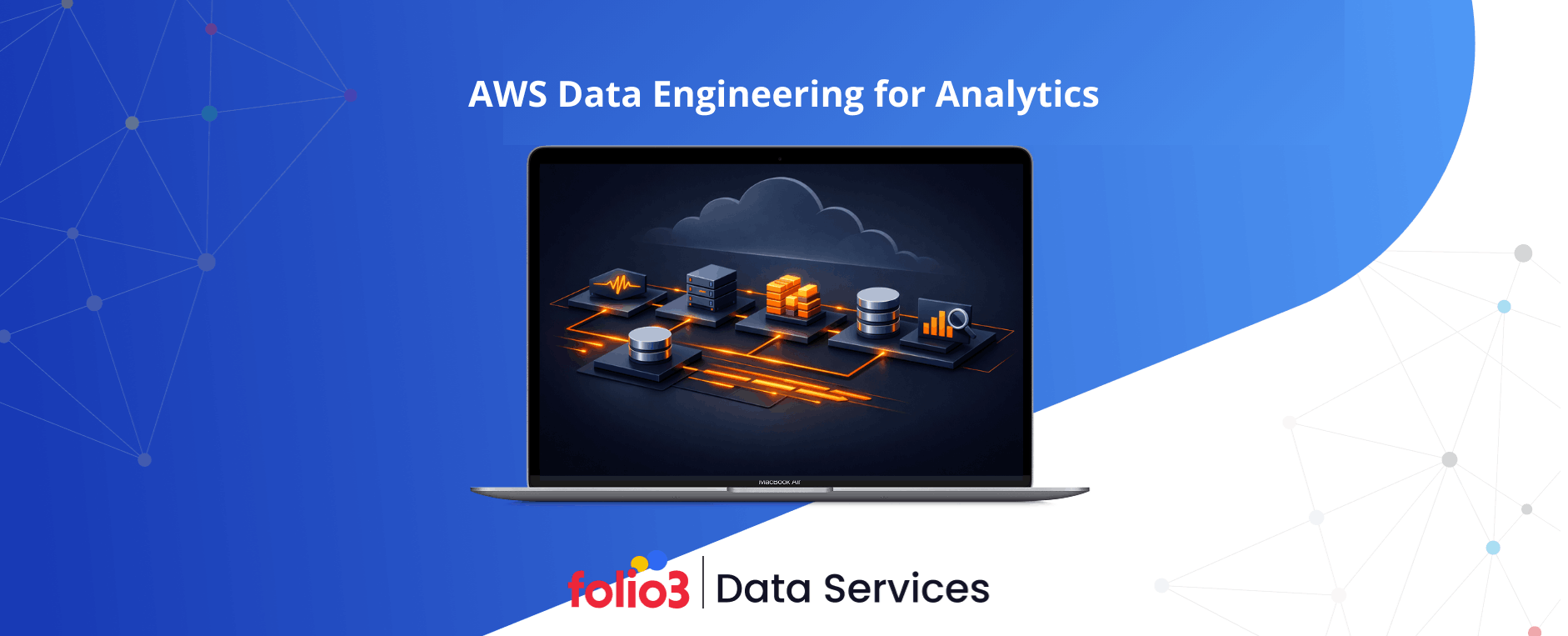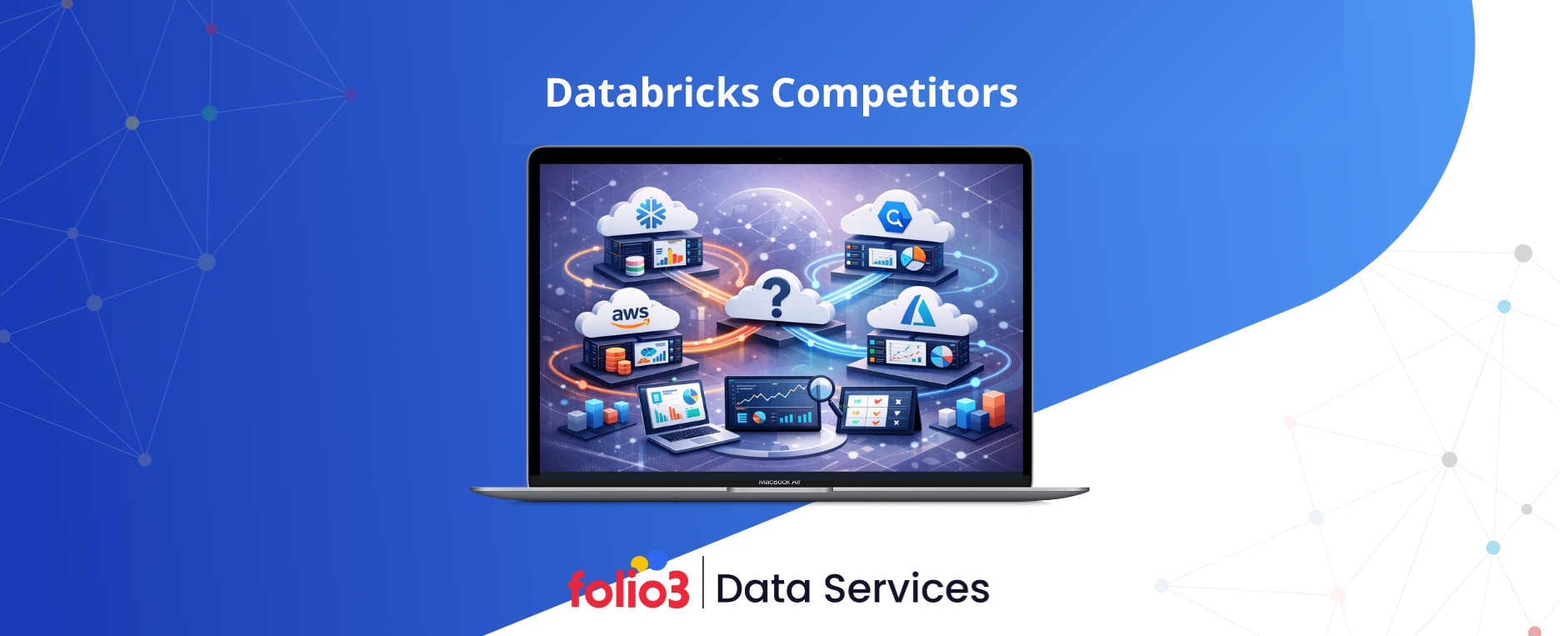Private equity data analytics is redefining how firms discover opportunities, assess risks, and unlock portfolio value. In an industry once dominated by intuition and relationship-driven decisions, data has emerged as the most powerful differentiator.
As competition intensifies and deals grow in complexity, analytics in private equity is transforming investment strategy from sourcing and valuation to monitoring and value creation. Traditionally, private equity firms relied on instinct, experience, and fragmented information to make high-stakes decisions. That approach worked when data was limited and markets evolved slowly.
But today’s digital economy generates vast, fast-moving streams of structured and unstructured data from market intelligence to alternative datasets such as hiring trends, online traffic, and consumer sentiment. Firms that fail to leverage these insights risk missing out on high-value opportunities and falling behind data-driven competitors.
Predictive analytics in private equity now enables firms to anticipate market shifts, identify hidden growth potential, and measure portfolio performance in real time. The shift toward intelligent, analytics-powered decision-making isn’t just about adopting technology, but it’s about building a data-driven culture that supports transparency, agility, and smarter investments. In this new era, data is no longer a supporting tool; it’s the foundation of private equity success.
What Is Private Equity Data Analytics?
Private equity data analytics is the process of collecting, integrating, and analysing vast volumes of financial, operational, and market data to drive more intelligent investment decisions. It enables firms to move beyond traditional spreadsheets and intuition, offering a data-driven lens into deal sourcing, due diligence, and portfolio performance.
By applying advanced analytics frameworks in private equity, such as predictive modelling, AI, and real-time dashboards, firms gain actionable insights into risk, valuation, and future growth potential. So, data analytics for private equity transforms raw data into strategic intelligence, empowering investors to identify opportunities more quickly and create measurable value across their portfolios.
Why Do Private Equity Firms Need Data Analytics?
Firms that rely solely on intuition and outdated models risk falling behind competitors who use data analytics for private equity to uncover insights faster, price assets more accurately, and optimise portfolio performance. From sourcing deals to ensuring compliance, analytics is transforming every stage of the investment lifecycle.
Faster & Smarter Deal Sourcing
Traditional deal sourcing often depends on personal networks and intermediaries. While still valuable, these methods can’t match the precision and speed of private equity analytics platforms. By continuously scanning thousands of companies, data models detect signals such as revenue growth, leadership changes, and financial stress surfacing opportunities before they become public.
Predictive analytics in private equity further enhances this process, ranking potential targets by their likelihood of success and helping teams efficiently prioritise high-value leads.
Accurate Valuation & Due Diligence
Due diligence is where data analytics delivers its sharpest impact. Automated financial and operational analyses identify risks early, from accounting anomalies to customer churn. Integrating alternative data—including hiring trends, online engagement, and market sentiment helps validate assumptions and refine valuations, ensuring every investment decision is rooted in objective, multidimensional insights.
Real-Time Portfolio Monitoring
Quarterly updates are no longer enough. Modern data and analytics for private equity enable real-time performance tracking across portfolio companies. Interactive dashboards unify financial, operational, and customer data, giving partners immediate visibility into KPIs, cash flow, and risk exposure in empowering swift, informed interventions when performance deviates from plan.
Data-Driven Value Creation
Analytics doesn’t just measure performance, but it drives it. Firms use data to refine pricing strategies, optimise operations, and benchmark performance across industries. By tracking every initiative’s ROI, analytics in private equity ensures capital and attention flow toward what truly enhances enterprise value.
Enhanced Compliance & Transparency
With growing LP demands and regulatory scrutiny, transparency is crucial. Data analytics automates ESG reporting, compliance monitoring, and performance attribution, providing accurate, audit-ready insights. This builds investor trust and positions firms as accountable, data-driven leaders in a rapidly evolving market.
Top Use Cases of Data Analytics in Private Equity
The growing adoption of private equity data analytics has transformed how firms source deals, assess risks, manage portfolios, and deliver value to investors. By turning raw data into actionable insights, firms can make faster, more informed decisions across every stage of the investment lifecycle. Here are some of the most impactful use cases of data analytics in private equity.
Deal Sourcing & Screening
Private equity analytics empowers firms to identify high-potential opportunities before competitors do. Advanced algorithms monitor vast datasets, including financial reports, hiring trends, news coverage, and even web traffic, to uncover early signals of growth or distress.
Using predictive analytics modelling, firms can rank prospects by likelihood of success and strategic fit, ensuring time and capital are focused on what matters most.
Due Diligence Analytics
Data analytics for private equity enhances due diligence by providing deep visibility into a company’s financial, operational, and market performance. Automated tools detect accounting irregularities, model revenue growth, and benchmark KPIs against industry peers. This data-driven rigour minimises risk and builds conviction before acquisition.
Portfolio Optimization
With real-time analytics, firms can continuously monitor performance across their entire portfolio. Dashboards centralise operational and financial data, helping partners identify underperforming assets, track KPIs, and optimise resource allocation. The result: improved returns and stronger post-acquisition performance.
Exit Strategy Analytics
Analytics enables firms to plan exits strategically by modelling various market scenarios and timing opportunities for maximum value realisation. Predictive modelling helps estimate valuation multiples and buyer interest with greater accuracy.
Investor Reporting & ESG Analytics
Transparency is critical in today’s private equity landscape. Data and analytics for private equity simplify ESG reporting and investor communications by providing automated dashboards and standardised templates that deliver real-time insights into performance, sustainability metrics, and portfolio impact to stakeholders.
Folio3 helps private equity teams design and deploy analytics solutions that transform investment decisions into measurable results.
Before vs. After – The Impact of Data Analytics on Private Equity
| Aspect | Before Analytics | After Analytics |
| Deal Sourcing | Reactive, network-dependent, limited coverage | Proactive, algorithm-assisted, comprehensive market monitoring |
| Due Diligence | Manual analysis, weeks of effort, surface-level insights | Automated financial modelling, alternative data integration,and deeper risk assessment |
| Valuation | Comparable multiples, basic DCF models | Scenario modelling, risk-adjusted returns, predictive revenue forecasting |
| Portfolio Monitoring | Quarterly board meetings, lagging indicators | Real-time dashboards, leading indicators, predictive alerts |
| Value Creation | Generic playbooks, unclear ROI | Data-driven initiatives, measured outcomes, continuous optimisation |
| Reporting | Manual compilation, generic updates | Automated reporting, customised insights, ESG integration |
| Decision Speed | Days to weeks for fundamental analysis | Hours to days with comprehensive insights |
| Resource Allocation | Subjective judgment, equal attention | Data-driven prioritisation, focused intervention |
Data Sources and Infrastructure for Private Equity Analytics
Successful private equity data analytics depends on combining multiple data sources into one unified, intelligent ecosystem. The real power of data analytics in private equity lies in integrating internal, external, and alternative datasets to uncover patterns and generate actionable insights that drive more intelligent investment decisions.
Internal Data
Internal data is the backbone of private equity analytics, encompassing portfolio company financials, operational metrics, deal histories, and CRM interactions. These datasets capture everything from revenue growth and customer transactions to deal flow and relationship tracking. However, since portfolio companies often use different systems, standardising and consolidating this data for cross-portfolio analysis requires robust integration and governance.
External and Alternative Data
External data adds essential market context through industry benchmarks, macroeconomic indicators, and competitive intelligence. M&A databases, social sentiment, and financial market data further enhance valuation accuracy and trend forecasting. Meanwhile, alternative data such as web traffic, hiring trends, and geolocation insights offers a forward-looking view of company performance.
These sources, combined with emerging trends in data analytics, help investors anticipate market movements and detect risks before they escalate.
Building a Private Equity Data Lakehouse
To manage these diverse data types, firms are adopting data lakehouse architecture. A lakehouse combines the scalability of data lakes with the structure of traditional warehouses, enabling seamless storage and analysis of both structured and unstructured data.
This modern infrastructure supports everything from real-time dashboards to predictive analytics in private equity, ensuring data accessibility, security, and compliance. Ultimately, a well-built data foundation transforms fragmented information into a strategic asset in powering faster, more informed decisions across the entire private equity lifecycle.
How to Build a Data Analytics Strategy for Private Equity
Building an effective data analytics strategy for private equity goes beyond adopting new tools—it requires aligning technology, people, and processes with the firm’s business objectives. A structured approach ensures that analytics investments translate into measurable impact and competitive advantage.
Step 1: Define Business Objectives
Every successful strategy begins with clarity. Firms must identify specific goals, whether it’s improving deal sourcing, enhancing due diligence accuracy, or optimising portfolio performance. Clear, measurable objectives ensure private equity analytics efforts remain outcome-driven rather than technology-led.
Step 2: Assess Data Maturity and Infrastructure
Before scaling analytics, firms must evaluate their current data landscape. Assessing data availability, quality, and integration readiness helps identify gaps in infrastructure and governance. Without reliable internal and external data pipelines, even the most advanced models deliver limited insight.
Step 3: Choose the Right Technology Stack
Selecting the right tools for private equity data analytics depends on business priorities. Cloud-based lakehouse architectures offer scalability, flexibility, and real-time processing power, supporting everything from dashboarding to predictive analytics in private equity applications.
Step 4: Build Cross-Functional Teams
Analytics success depends on collaboration between investment experts and data professionals. Cross-functional teams bridge business context with technical execution, ensuring insights are both relevant and actionable.
Step 5: Measure ROI and Continuously Optimise
Finally, firms must track results to reduce due diligence time, improve portfolio ROI, or increase sourcing efficiency. Continuous measurement and feedback loops allow firms to refine models, enhance adoption, and evolve toward more sophisticated, AI-powered private equity analytics capabilities.
Key Challenges in Implementing Private Equity Analytics
While private equity analytics offers immense potential for data-driven decision-making, firms often face several implementation challenges that must be addressed to achieve measurable impact.
1. Data Silos and Integration Challenges
Private equity firms and portfolio companies operate across multiple systems such as ERPs, CRMs, and accounting tools that rarely communicate seamlessly with one another.
Integrating this fragmented data into a unified analytics platform often requires the expertise of data engineering consultants to manage complex standardisation and synchronisation efforts.
As portfolios expand, these silos grow, complicating real-time insights and portfolio-wide visibility. Implementing scalable data integration solutions and standardised governance frameworks is crucial for sustainable analytics adoption.
2. Inconsistent Data Quality and Governance
Analytics is only as reliable as its underlying data. Inconsistent data definitions, missing values, and poor data hygiene can undermine investment insights and performance tracking. Establishing centralised data governance policies, maintaining data dictionaries, and enforcing validation checks ensures consistent and trustworthy analysis across the portfolio.
3. Limited Data Literacy Across Teams
Even with advanced analytics tools, firms struggle when team members cannot interpret or trust analytical outputs. Bridging this gap requires cross-functional training to enhance both analytical and business literacy in empowering investment professionals to make confident, data-informed decisions.
4. Compliance and Privacy Risks
With growing data volumes, privacy and regulatory compliance become major concerns. Frameworks such as GDPR and CCPA require strict adherence to data protection and security standards. Embedding compliance into analytics workflows through encryption, access controls, and regular audits helps mitigate risks and ensure regulatory alignment.
Choosing the Best Analytics Partner for Private Equity Success
Selecting the right private equity analytics partner is critical to transforming data into actionable intelligence. Since most PE firms lack in-house analytics expertise, choosing a partner with the right balance of technical capability, industry knowledge, scalability, and compliance maturity is essential.
Key Evaluation Criteria
The ideal partner should combine deep private equity expertise with strong technical implementation skills. They must understand deal sourcing, portfolio optimisation, and investor reporting not just analytics. Evaluate data integration capabilities, scalability for growing portfolios, and adherence to data governance and compliance frameworks such as GDPR and CCPA. Cloud-native architecture, strong data security, and a proven track record in private equity analytics are all key indicators of reliability.
Questions to Ask Analytics Providers
When assessing providers, go beyond marketing claims. Ask about:
- Experience with PE clients and measurable results delivered.
- Methods for data integration across portfolio companies.
- Handling of data quality, governance, and compliance.
- Support structure, response times, and post-implementation assistance.
- Pricing models, scalability, and long-term roadmap alignment.
Build vs. Buy Approach
| Factor | Build In-House | Buy/Partner |
| Upfront Cost | High (talent, infrastructure) | Lower (licensing, setup) |
| Time to Value | 12–24 months | 3–6 months |
| Customization | Fully flexible | Moderate flexibility |
| Technical Risk | High | Low |
| Expertise Needed | Extensive in-house | Provided by partner |
| Best For | Large firms with niche needs | Firms seeking quick, proven results |
Why Folio3 Is the Ideal Private Equity Analytics Partner?
Folio3 stands out as a leading data analytics services company, combining deep industry knowledge with technical excellence. Their cloud-native, scalable solutions integrate seamlessly with portfolio company systems, enabling unified reporting, real-time insights, and ESG analytics. With former PE professionals on board, Folio3 understands the nuances of investment workflows and value creation strategies.
Their iterative implementation model ensures rapid time-to-value, while built-in compliance, encryption, and governance frameworks safeguard sensitive data. Beyond deployment, Folio3 offers continuous support, strategic guidance, and advanced AI-driven analytics to help firms evolve their data maturity and sustain long-term competitive advantage.
From data silos to governance issues, overcoming private equity analytics challenges starts with the right framework and expertise.
Data-Driven Success Stories from Private Equity Firms
Here are three compelling case studies showcasing how private equity data analytics is transforming firm performance by applying analytics across different stages of the investment lifecycle:
Case 1: Improving Deal Sourcing with AI-Driven Analytics
A U.S.-based private equity firm completely revamped its sourcing engine by integrating AI and machine-learning models into its CRM and deal funnel.
The firm used predictive analytics to scan thousands of companies, detect early signals of high-potential targets (such as revenue inflexion points or management changes) and automatically score them for fit, enabling faster prioritisation and higher-quality deal flow.
According to one use-case overview, this allowed them to increase deal throughput and decision quality while shortening the time from target identification to LOI.
Case 2: Portfolio Monitoring with Automated Dashboards
A mid-sized PE firm deployed a real-time dashboarding system using analytics for private equity to consolidate financial, operational, and KPI data across its portfolio companies.
With this automated platform, the firm achieved enhanced visibility into performance deviations, operational bottlenecks and emerging trends, allowing investment professionals and operating partners to intervene proactively, shorten reporting cycles and improve overall portfolio oversight.
Case 3: Streamlining Investor Reporting via Data Integration
AfricInvest, a pan-African PE firm, implemented a turnkey analytics platform from Quantium Technology to unify fund and investor data, eliminating Excel-based silos and manual consolidation.
The initiative improved transparency and response speed to LPs by centralising investor and portfolio data, automating reporting (including ILPA-compliant metrics) and increasing data accuracy, leading to stronger stakeholder relationships and operational efficiency.
FAQs
What is private equity data analytics, and why is it important?
Private equity data analytics refers to the use of data-driven tools and techniques to evaluate deals, monitor portfolios, and optimise value creation. It helps firms turn raw data into actionable insights. By enabling faster, smarter investment decisions, analytics gives PE firms a measurable competitive edge.
How are private equity firms using data analytics to improve deal sourcing?
Private equity firms use analytics to identify high-potential targets earlier by tracking financial trends, market signals, and growth indicators. Predictive models score and prioritise opportunities. This data-driven deal sourcing accelerates decision-making and increases deal conversion rates.
How does data analytics enhance due diligence in private equity?
Data analytics strengthens due diligence by uncovering financial anomalies, operational inefficiencies, and market risks in real time. Firms use advanced analytics tools to validate assumptions and forecast performance. The result is faster, more accurate investment assessments.
What types of data do private equity firms analyse for better decision-making?
PE firms analyse financial, operational, customer, and alternative data sources for insights. This includes KPIs, revenue trends, workforce metrics, and market sentiment. Such comprehensive data analytics support informed investment and portfolio management decisions.
How does analytics help private equity firms optimize portfolio performance?
Analytics enables continuous portfolio monitoring through real-time dashboards and KPI benchmarking. It helps identify underperforming areas and value-creation opportunities. With portfolio analytics, firms can enhance returns and minimise risk across investments.
What are the key benefits of data-driven decision-making in private equity?
Data-driven decision-making enhances transparency, speeds up analysis, and improves deal accuracy. It reduces human bias and strengthens forecasting. Overall, it drives higher returns and operational excellence across the private equity lifecycle.
What challenges do private equity firms face when implementing data analytics?
Common challenges include data silos, poor data quality, limited analytics literacy, and compliance risks. Integrating diverse systems from portfolio companies can be complex. Overcoming these barriers requires strong data governance and the right technology partner.
How can artificial intelligence and machine learning transform private equity analytics?
AI and machine learning empower private equity analytics by automating deal sourcing, predicting performance, and uncovering hidden patterns. These technologies enhance decision accuracy. They’re transforming PE firms into proactive, data-driven investors.
What tools and technologies are commonly used for private equity data analytics?
Private equity firms leverage platforms like Snowflake, Databricks, Power BI, and AWS for analytics. These tools efficiently manage large data volumes. Combined with AI and BI tools, they support advanced modelling, visualisation, and reporting.
How do data analytics platforms improve operational efficiency for portfolio companies?
Data analytics platforms unify financial and operational data, enabling better forecasting and faster reporting. They highlight inefficiencies across processes. As a result, portfolio companies achieve higher productivity and improved profitability.
How do private equity firms use analytics to plan exit strategies?
Analytics helps firms model exit scenarios, forecast valuations, and time divestments for maximum returns. By analysing performance trends and market conditions, PE firms make strategic, data-backed exit decisions.
How do data and analytics help private equity firms address common challenges?
Data analytics mitigates risks by improving visibility into portfolio performance and compliance. It streamlines reporting and enhances operational efficiency. Ultimately, analytics empowers firms to make smarter, faster, and more transparent investment choices.
What are the latest trends shaping the future of private equity data analytics?
Emerging trends include AI-driven predictive modelling, ESG analytics, and cloud-native data platforms. These innovations enable scalable insights and real-time reporting. The future of private equity analytics is intelligent, automated, and insight-first.
Conclusion
Private equity firms that leverage advanced data analytics gain a significant edge through more innovative deal sourcing, faster due diligence, and optimised portfolio management and exit strategies. By adopting a structured, insight-led approach, firms can turn raw data into strategic growth.
Partnering with experts like Folio3 Data Services empowers PE firms to use AI, automation, and analytics for measurable results, driving smarter investments and sustainable value creation across every stage of the deal lifecycle.





